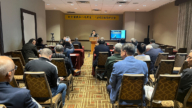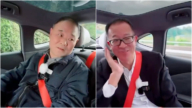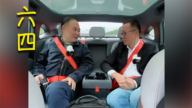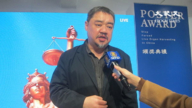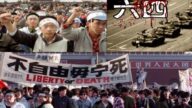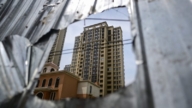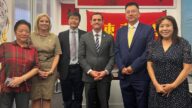【新唐人2012年12月21日訊】北京新聞界人士最新透露,作為中共喉舌的中央報刊總編輯,第一個向「六四」遭受迫害的記者與編輯「公開道歉」的,是前《中國青年報》的總編徐祝慶。報導說,他的道歉,為他的政治生涯畫上了完美的句號。
《博訊網》引述知情人透露的消息,早在2004年,前《中青報》總編徐祝慶卸任的時刻,他在報社編輯部的歡送宴席上,公開向六四以後曾經受到處分和受過傷害的同事道歉。
報導說,作為一個副部級幹部,徐祝慶是第一個向六四受迫害的記者、編輯,公開道歉的中共中央報刊總編輯。
前《中國青年報》資深編輯李大同認為,六四期間很多官員身不由己。
前《中國青年報》資深編輯 李大同:「1.57每個正直的人都會這樣。你每個正直的人都會這樣。官員你在89(年)的時候就不得不做某些事情。實際上他是不想做的。退休的時候他表達歉意。」
在「八九民運」期間,《中國青年報》在頭版刊登了大幅照片,報導《中國青年報》記者與編輯參加遊行。報導說,在「4.26社論」的污衊面前,《中國青年報》的記者和編輯,串聯北京新聞界的同仁,發佈了「首都新聞界兩千多記者編輯給中央的公開信」,要求「新聞講真話,民主改革和肯定學生的愛國熱情」。
由於北京的新聞界介入了學潮,成為「學潮」擴大為「民運」的一個轉折點,之後,民主黨派及各界人士也紛紛加入。
當時的政治局常委胡啟立到《中國青年報》與記者、編輯座談,並傳遞了趙紫陽關於「新聞界可以開放一些」的講話。當時,在中國新聞史上有過所謂「短暫的春天」。
《中青報》王牌欄目—-《冰點》週刊的創刊編輯及主編李大同,當時負責撰寫和提交那封「新聞界給中央的公開信」。
李大同:「2.54送上去第三天,胡啟立就到報社來對話了。我們談了三四個小時。談的很好。但是你覆巢之下安有完卵,胡啟立自己也沒有保住。就不要說這些人了。」
「八九民運」被坦克、機槍暴力鎮壓後,新聞界也開始了「大整肅」,《中國青年報》也不例外。提交新聞界請願書的李大同被撤職,部分記者、編輯被迫離開了報社。
據台灣《聯合報》1989年5月10號的報導,1,031名北平新聞記者及編輯聯署,爭取新聞自由,呈遞請願書,要求與中共黨中央主管宣傳的領導「對話」,「北京大學」及「北京師範大學」的部分學生到場聲援、呼口號,引來大批中外記者到場「採訪」,成為中共有史以來,規模最大的一次「爭取新聞自由」的運動。
《聯合報》六四期間的報導說,請願代表李大同宣讀公開信的內容,並指出,請願動機是,那段時間以來,中國新聞界連續發生海內外矚目的重大事件,但北京記者沒有做到全面公正、客觀報導。經反省後,記者發現是現行體制使然,因此希望和中共中央主管宣傳的領導對話,把體制推到新高點。
另一名大陸記者在公開信的發佈會上指出,他們聯署是基於新聞良心。因為常有人問他們,每發生重大事件,大陸新聞界即「短路」?尤其這次學生運動,學生轉向對外籍記者要求支持,實在使大陸新聞界尷尬,因此他們忍無可忍,要求與黨中央對話。
《博訊》引述消息說:徐祝慶在2004年卸任的時候,預感六四總有一天會平反。
採訪編輯/秦雪 後製/蕭宇
First CCP Newspaper Chief Editor to Apologizes for Actions in “6.4 Pro-Democracy Movement”.
Media reported that Beijing media professionals recently
disclosed that Xu Zhuqing made a first public apology to
reporters and editors who were punished for involvement
in the “June 4th pro-democracy movement” of 1989.
In 1989, Xu was then-chief editor of China Youth Daily,
a mouthpiece of the Chinese Communist Party (CCP).
The report reviewed that the apology
gave a perfect end to Xu’s political career.
Boxun.com quoted informed sources, saying that
on his retirement farewell in 2004, Xu Zhuqing openly
apologized to his colleagues who had been punished for
participating in the June 4th pro-democracy movement.
The report said that as a vice-ministerial level CCP cadre,
Xu Zhuqing is the first chief-editor of a CCP central
newspaper who has made such a pubic apology.
Li Datong, former senior editor of the China
Youth Daily, says that in 1989, many CCP officials did not act of their own free will.
Li Datong: “Every person of integrity has such feelings.
In 1989, those officials had to do something,
but in fact, that was not their own free will.
So he apologized for this when he retired.”
During the 1989 pro-democracy movement, China
Youth Daily published on the front page a large photo
of its journalists and editors walking in the march.
The report said that in facing the slander of “4-26 Editorial,"
the newspaper’s journalists and editors and Beijing’s
media professionals jointly released an open letter.
This was entitled, “An Open Letter to the Central
Committee by Beijing’s over 2,000 Journalists & Editors.”
They requested “truth-telling news reports, democratic
reforms, and affirmation of students’ patriotic enthusiasm.”
Beijing press circles’ participation of the 6.4. student
movement enlarged it into a “pro-democracy movement”.
Afterwards, China’s democratic parties
and people from all walks of life joined in.
Hu Qili, then-member of the CCP Politburo
Standing Committee, held a talk with China Youth Daily reporters and editors.
Hu Qili conveyed Zhao Ziyang’s speech
on “some opening-up in the press”.
At that time, a “short spring" befell on China’s media world.
Freezing Point magazine is China Youth Daily’s ace program.
Its then-editor chief Li Datong
wrote and submitted that open letter.
Li Datong: “Three days later after I had handed
it in, Hu Qili went to the newspaper office.
We talked for three or four hours,
and communicated very well.
But when the nest is overturned, no egg stays unbroken.
Hu Qili was later ousted from
the Politburo Standing Committee.
Let alone considering the fate
of these journalists and editors.”
The CCP’s tanks and guns suppressed
the 1989 pro-democracy movement.
China’s media world underwent a great
purging, with China Youth Daily no exception.
Li Datong was dismissed, and some reporters
and editors were forced to leave the newspaper.
According to Taiwan’s United Daily News (UDN)
report dated May 10 1989, 1,031 journalists and editors in Beijing addressed a petition.
It asked for a “dialogue” with the CCP propaganda chief.
Students from Peking University and Beijing Normal
University chanted slogans on site to give support.
Lots of Chinese and foreign journalists conducted
on-site interviews, which was the largest campaign for “freedom of the press” since 1949.
The UDN reported that Li Datong read the open letter
in public, and disclosed the motive behind the petition.
It was because in that period of time, a series
of sensational events occurred in China’s press circles.
However, Beijing journalists did not
give full and impartial coverage.
With introspection, they found out the
reason was due to the existing system.
Therefore, they asked for a dialogue with the CCP
propaganda chief to contribute to improve the system.
Reportedly, at the news conference for the
open letter, a journalist said that the petition was based on conscience in media.
They were often asked why China’s media
always shorted out for every major event ?
In particular, in the 6.4 movement, students
sought support from foreign journalists, which really made China’s media feel embarrassed.
Being driven beyond forbearance, they urged dialogue
with the Party’s Central Committee, said the journalist.
According to the Boxun.com news report, sources said
that when retired in 2004, Xu Zhuqing predicted a future vindication of the 6.4 pro-democracy movement.


